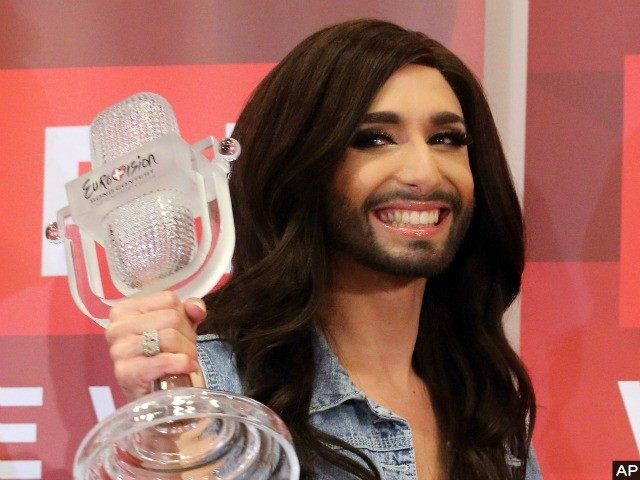The Eurovision Song Contest began in 1956 as a way to bring the nations of Europe together and sweeten relations between suspicious countries still recovering from World War II. Largely due to the dissolution of the Soviet Union, the contest has long included Asian participating nations, but this year, organizers intend to stretch the definition of Europe even further: to Australia.
Australia, organizers announced this week, will be the fortieth nation to send a performer to compete in the song contest, in which a combination of judges and viewers across all competing nations vote for the best song in the field. “To give the anniversary celebrations an extra dimension and to walk the talk on this year’s theme, Building Bridges, EBU and host broadcaster ORF invited Australia to compete in the Grand Final of the 2015 Eurovision Song Contest,” organizers explain. They vow that Australia, which is tens of thousands of miles from Europe, will be allowed to compete “just for once, and for many good reasons!”
Australia was present in the Eurovision Song Contest last year–not as a competitor, but as a friendly special guest, performing an interval act halfway through the competition.
Given that Australia remains under the purview of Queen Elizabeth II, allowing the nation a presence at a competition that has regularly included Israel and Azerbaijan as part of Europe is not an impossible stretch. For those following the controversies of the 2014 competition, however, it may appear that adding a new country–particularly one with a more robust history of Western classical liberal values than nations like Belarus and Russia–could be a buffer for any further potential disputes on who is and is not allowed to participate.
Russia, in particular, vocally protested the results of the 2014 Eurovision Song Contest. Its winner, Austria’s Conchita Wurst, has become an international symbol of LGBT rights, after performing in full drag at the competition, as well as sporting a robust beard.
In response to Wurst’s appearance, one Russia official decried Eurovision as a “Europe-wide gay parade,” and President Vladimir Putin himself condemned Wurst’s decision to “put [his] life up for show.” (Putin also called himself “personally very liberal” in the same interview.) Russian officials went so far as to propose creating a “straight” version of Eurovision, organized by the Russian government, to avoid participating in the “collapse of the European Union’s moral values.”
Russia is not incorrect to point out that the Eurovision Song Contest has evolved in genre from a selection of boilerplate pop songs to, well, this. But, disregarding appearances, Wurst’s song was among the tamest in the selection, more rejected James Bond theme song than techno pride anthem.
It should be noted that, LGBT politics aside, the Russian entry to Eurovision was booed last year and did very poorly in the popular vote, largely believed to be the result of Europe’s rejection of Russia’s military belligerence regarding Ukraine. The Russians were also the laughingstock of Twitter for their milquetoast entry, which some even joked they must have stolen from Ukraine during the invasion of Crimea. Given that Russia’s aggression has not abated, its entry this year stands to receive the same icy reception in host city Vienna, perhaps greeted with even more distance than newcomer Australia itself.
The Eurovision Song Contest finale will be held on May 23. Semifinals, in which the field of 40 competitors is reduced by half, will be held on May 19 and 21. Most nations have yet to select their entries for this year’s competition.

COMMENTS
Please let us know if you're having issues with commenting.